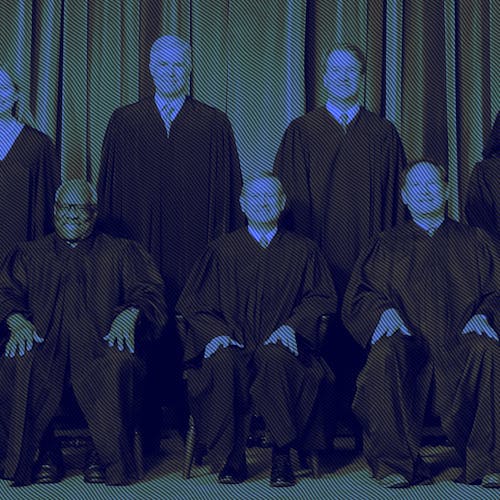CASTELLI: Liberals, conservatives share fundamental values

How does one define a liberal and conservative? It should come to no surprise to those who have been following the evolution of these labels that this discussion has become more complicated in recent years and climaxed in the aftermath of the 2016 presidential election. After former Secretary of State Hillary Clinton’s upsetting loss, liberals have found themselves fractured and increasingly combative within their own community. Conservatives, libertarians, centrists and classical liberals have found unusual allies with one another and have been working together to form a counter culture coalition. Indeed, the two-party system has been turned on its head.
There are certain connotations, often negative, with labeling oneself as either a conservative or liberal, so much so that it has created a toxic hostility between those whose views differ from their respective party’s mainstream platform. This tension is prevalent in the culture war on college campuses, perpetuated partially by media sensationalism. In reality, the ideologies that claim to be in opposition are created upon the same foundation.
To demonstrate this concept, let’s look at a hotly debated topic between the two parties: government intervention in the economy. Traditional conservatives and liberals believe in the idea of economic opportunity. This is not to be confused with the concept of economic equality, wherein everyone earns the same wages. Economic opportunity refers to the idea that people are given the equal chance to work for a profit. Every citizen should have the freedom to support themselves by working. Where these two ideologies differ, though, is in the approach.
The conservative platform involves a deregulation method to the free market, which comes from their belief of limited government. Conservatives believe that the federal government is both too inefficient and distant to successfully fix problems, and more often than not creates more problems than it started with. To prevent this, they believe that it should be left up to the individual to solve. This belief extends to the market. Companies are viewed as individuals according to the Citizens United v. Federal Election Commission decision, and therefore should be free from most government interference. Lack of regulation allows the individuals to hoist themselves up and provides the necessary freedom for both companies and people to pursue their goals.
The liberal platform advocates for government interference in order to promote equality. Companies exist to make a profit, which creates an inherent struggle between workers and employers. Workers want to work for the most amount of money and employers wish to pay the least amount of money. When left to their own devices, companies often engage in trusts that eliminate competition, a situation in which the government has to step in and dissolve them. Monopolies infringe on a person’s right to economic freedom, and since the government is engaged in a social contract with its citizens to protect their civil liberties, they should have control over businesses.
The two platforms, while different in the notion of limited government versus big government, are both rooted in the importance of individualism. For conservatives, they believe that the federal government tends to limit the rights of a citizen. For liberals, they believe that the federal government helps protect the rights of a citizen. These perceptions of the individual hinge on the idea that the individual is an independent, sovereign and rational being in charge of his own destiny. Whether or not people believe in the interpretations brought up by each party determines where they align themselves. Both conservatives and liberals believe in the same fundamental value, but reach different conclusions. It is a tragic irony that individualism, a principle integral to the core of American values, has now become a partisan issue.
College students seem to equate conservative and liberals into two camps, depending on where they stand politically: the bigoted, redneck chauvinist or the virtue-signalling offended socialist, respectfully. In reality, a person’s political opinions are more nuanced than that. Political affiliation exists on a spectrum, and it is ignorant to paint the majority of each side as a caricature of its fringes. Both Republicans and Democrats have resorted to mudslinging and slander, and continue to become more polarized. The fringes of both parties have concluded that to end this cultural war, the other must be suppressed by any means necessary, especially in the aftermath of tragedies. Let us focus on what unites us, rather than what divides us and perhaps shut our mouths so we can hear the other person speaking.
Giana Castelli is a School of Arts and Sciences junior majoring in political science. Her column, "Conservative Across the Aisle," runs on alternate Fridays.
*Columns, cartoons and letters do not necessarily reflect the views of the Targum Publishing Company or its staff.
YOUR VOICE | The Daily Targum welcomes submissions from all readers. Due to space limitations in our print newspaper, letters to the editor must not exceed 500 words. Guest columns and commentaries must be between 700 and 850 words. All authors must include their name, phone number, class year and college affiliation or department to be considered for publication. Please submit via email to [email protected] by 4 p.m. to be considered for the following day’s publication. Columns, cartoons and letters do not necessarily reflect the views of the Targum Publishing Company or its staff.



